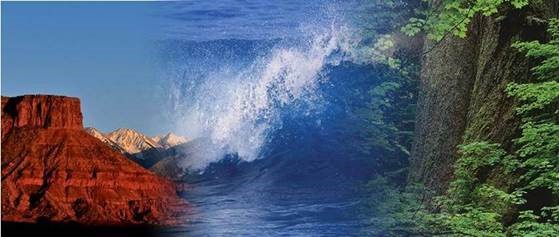
Faculty Publications
ORCID iD
0000-0002-1004-5048
Document Type
Article
Abstract
Water column bulk Pseudo-nitzschia abundance and the dissolved and particulate domoic acid (DA) concentrations were measured in the Santa Barbara Basin (SBB), California from 2009–2013 and compared to bulk Pseudo-nitzschia cell abundance and DA concentrations and fluxes in sediment traps moored at 147 m and 509 m. Pseudo-nitzschia abundance throughout the study period was spatially and temporally heterogeneous (L−1 to 3.8 × 106 cells L−1 , avg. 2 × 105 ± 5 × 105 cells L−1 ) and did not correspond with upwelling conditions or the total DA (tDA) concentration, which was also spatially and temporally diverse (1000 cells L−1 and tDA = 200 ng L−1 ) measured as deep as 150 m. Our results highlight that dDA should not be ignored when examining bloom toxicity. Although water column abundance and pDA concentrations were poorly correlated with sediment trap Pseudo-nitzschia abundance and fluxes, DA toxicity is likely associated with senescent blooms that rapidly sink to the seafloor, adding another potential source of DA to benthic organisms.
Digital Object Identifier (DOI)
10.3390/toxins10110480
Publication Info
Published in Toxins, Volume 10, Issue 11, 2018, pages 1-25.
Rights
© 2018 by the authors. Licensee MDPI, Basel, Switzerland. This article is an open access article distributed under the terms and conditions of the Creative Commons Attribution (CC BY) license (http://creativecommons.org/licenses/by/4.0/).
APA Citation
Umhau, B., Benitez-Nelson, C., Anderson, C., McCabe, K., & Burrell, C. (2018). A Time Series of Water Column Distributions and Sinking Particle Flux of Pseudo-Nitzschia and Domoic Acid in the Santa Barbara Basin, California. Toxins, 10(11), 480. doi: 10.3390/toxins10110480

